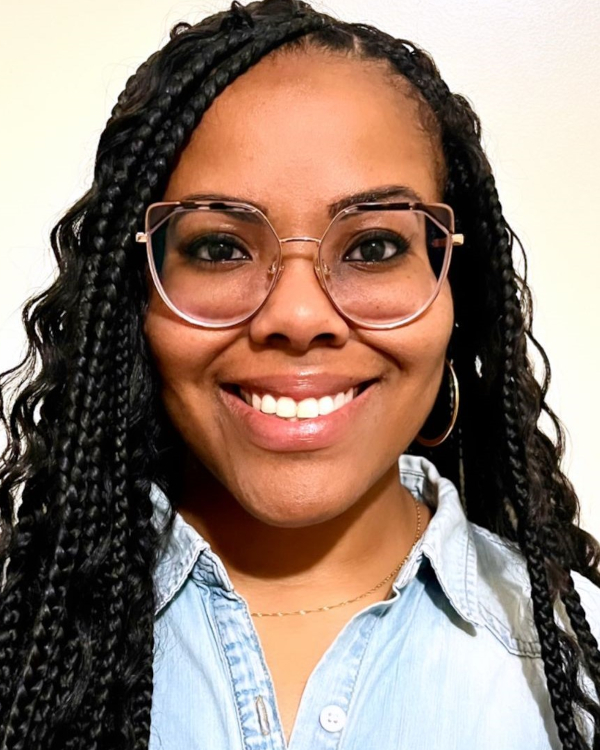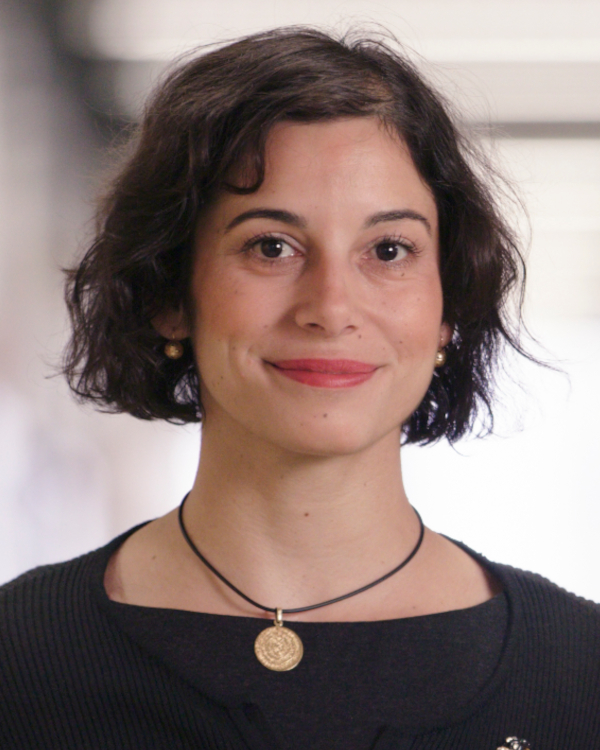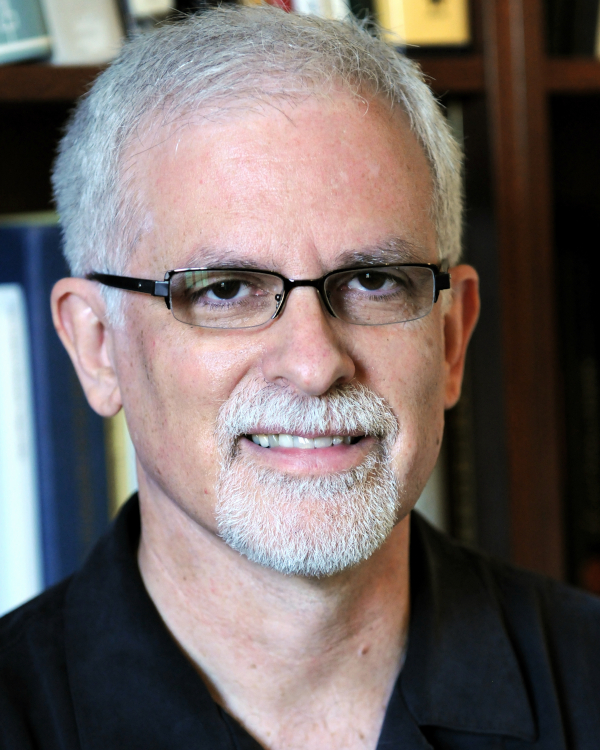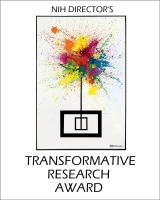2023 Awardees

Aerielle M. Allen, Ph.D.
Tufts University
Project Title: Effects of Racism on Brain and Physiological Pathways to Health Disparities
Grant ID: R01-MH136641
MPIs: Lisa Shin, Ph.D. and Samuel Sommers, Ph.D.
Aerielle M. Allen, Ph.D., is an Assistant Professor in the Department of Psychology at Tufts University in Medford, Massachusetts, with an affiliation in the Department of Community Health. Dr. Allen’s research focuses broadly on the antecedents and consequences of systemic racism in the U.S. in domains such as healthcare and the criminal justice system. She uses the legacy of racism as a guide to understand how, through interlocking systems that function at the personal, interpersonal, institutional, and cultural levels, societal inequities are maintained and perpetuated across various social groups defined not just by race, but by a wide range of identities (e.g., gender, sexual orientation). Dr. Allen is a former New York University Provost Postdoctoral Faculty Fellow. She received her B.A. in Psychology at the University of California, Los Angeles, her M.A. at California State University, Northridge, and Ph.D. at the University of Connecticut, Storrs.

Maninjay K. Atianand, M.B.B.S., Ph.D.
University of Pittsburgh School of Medicine
Project Title: Unraveling Microprotein Biology with an Evolutionary-Immunological Framework
Grant ID: R01-AT012826
MPIs: Anne-Ruxandra Carvunis, Ph.D., Alok Joglekar, Ph.D., and Arvind Subramaniam, Ph.D.
Maninjay Atianand is an Assistant Professor of Immunology at the University of Pittsburgh. His research is focused on the discovery and systematic characterization of the cellular functions of novel long noncoding RNAs (lncRNA) and microproteins in the immune system and cancer. He completed his medical training at Grant Medical College in India and received his Ph.D. at Albany Medical College for his research on primate-restricted microproteins. He performed his postdoctoral work with Prof. Kate Fitzgerald at the University of Massachusetts Medical School in the areas of lncRNAs, gene regulation and inflammation. Dr. Atianand’s research has made significant contributions in advancing the lncRNA field through the discovery of immune functions of several lncRNAs, and his work has been recognized through awards including American Heart Association fellowship.

Anne-Ruxandra Carvunis, Ph.D.
University of Pittsburgh
Project Title: Unraveling Microprotein Biology with an Evolutionary-Immunological Framework
Grant ID: R01-AT012826
MPIs: Maninjay Atianand, M.B.B.S., Ph.D., Alok Joglekar, Ph.D., and Arvind Subramaniam, Ph.D.
Dr. Carvunis received a B.S. in Biology/Biochemistry and a Masters in Molecular Neurosciences from Université Paris VI and the Ecole Normale Supérieure of Paris and a second Masters in Interdisciplinary Approaches to Life Sciences from Université Paris VII. She graduated with a Ph.D. in Bioinformatics from Université de Grenoble in 2011, having done most of her graduate research work on the mechanisms and dynamics of protein interaction network evolution in the Center for Cancer Systems Biology at Dana Farber Cancer Institute and Harvard Medical School. After a brief postdoctoral fellowship at Harvard Medical School, Dr. Carvunis went on to study the evolution of transcriptional networks at the University of California, San Diego. Her research group in Pittsburgh investigates the molecular mechanisms of change and innovation in biological systems. Dr. Carvunis has received a number of distinctions including a Medal of honorable doctoral work, the national L’Oreal-Unesco Award for Women in Science, the NIH Pathway to Independence Award, the Searle Scholars award, the Trailblazer award from the Ladies Hospital Aid Society, the NIH Director’s New Innovator Award, a Sloan Research Fellowship, the NSF CAREER award, the University of Pittsburgh Chancelor’s Distinguished Award for Research and a Human Frontier Science Program award.

Alok V. Joglekar, Ph.D.
University of Pittsburgh School of Medicine
Project Title: Unraveling Microprotein Biology with an Evolutionary-Immunological Framework
Grant ID: R01-AT012826
MPIs: Maninjay Atianand, M.B.B.S., Ph.D., Anne-Ruxandra Carvunis, Ph.D., and Arvind Subramaniam, Ph.D.
Alok Joglekar completed his Ph.D. at the University of California, Los Angeles under the guidance of Dr. Donald B. Kohn, where he focused on gene therapy using site-specific nucleases. Upon graduating, Dr. Joglekar completed his postdoctoral research at California Institute of Technology in Dr. David Baltimore's lab, focusing initially on the role of T cells in natural control of HIV infection. While in the Baltimore lab, he began working on cell engineering using chimeric receptors and created a cell-based T cell epitope discovery method. In 2019, Dr. Joglekar started his lab at the Center for Systems Immunology and the Department of Immunology at the University of Pittsburgh, where he focuses on understanding T cell mediated immune responses using systems approaches and creative engineering.

Thomas Kodadek, Ph.D.
The Herbert Wertheim UF Scripps Institute for Biomedical Innovation & Technology
Project Title: Development of Ubiquitin-Independent Degraders
Grant ID: R01-CA290247
Prof. Kodadek received his B.S. in Chemistry at the University of Miami, his Ph.D. in Organic Chemistry from Stanford University and conducted post-doctoral studies with Prof. Bruce Alberts at UCSF with a focus on DNA replication enzymology. He was Professor of Chemistry and Biochemistry at the University of Texas at Austin and Professor of Internal Medicine and Molecular Biology at UT Southwestern Medical Cneter before assuming his present position in 2009.

Dmitry Rinberg, Ph.D.
NYU Grossman School of Medicine
Project Title: Odorprint Based Disease Diagnostics
Grant ID: R01-DC021826
Dr. Dmitry Rinberg is a Professor of Neuroscience and Physiology at the NYU Grossman School of Medicine. He graduated from the Weizmann Institute of Science with PhD in Physics and has been leading a research lab first at Janella Farm Research Campus, HHMI, and then at NYU. His research focuses on fundamental principles of neural coding and olfactory information processing in the brain, as well as on the applied direction of using the olfactory system as a versatile and highly sensitive chemical detector. Combining fundamental and applied research, Dr. Rinberg’s lab is pushing the limits of our understanding of signal processing in the olfactory system and developing such novel application as odor-based disease diagnostics.

Michael Lee Roukes, Ph.D.
California Institute of Technology
Project Title: Next-Generation Spatial -Omics: High-Throughput, Single-Molecule Proteomic Imaging with Subcellular Resolution
Grant ID: R01-MH136394
Funded by the National Institute of Mental Health and Common Fund
Prof. Roukes, his group, and his collaborators are working to explore new physics at the nanoscale, and to apply this knowledge to both explore new physics frontiers and to realize advanced tools for the biomedical and life sciences. His current focus is on (i) single-cell / single-molecule proteomics (in close collaboration with Dr. Alexander Makarov, Thermo Fisher Scientific); and (ii) on the fundamental and quantum physics of nanoelectromechanical systems (NEMS) and NEMS arrays – including complex dynamics of nonlinear networks, quantum calorimetry of novel logic operations, and quantum-limited spectroscopy (with Prof. Amir Safavi-Naeini, Stanford and others), (iii) and on next-gen electronic and photonic neurotechnology for massively parallel interrogation of brain activity (with Prof. Ken Shepard, Columbia). Roukes was the founding Director of Caltech’s Kavli Nanoscience Institute and was one of the five scientists who originally proposed and then worked with the Obama administration’s Office of Science and Technology Policy to launch its BRAIN Initiative. Among his awards, Roukes is a Fellow of the American Physical Society, an NIH Director’s Pioneer Awardee, and Chevalier (Knight) of the Ordre des Palmes Academiques, Republic of France. He has founded three companies and currently holds over 60 issued patents in his fields of endeavor.

Lisa Shin, Ph.D.
Tufts University and The Massachusetts General Hospital/Harvard Medical School
Project Title: Effects of Racism on Brain and Physiological Pathways to Health Disparities
Grant ID: R01-MH136641
MPIs: Arielle Allen, Ph.D. and Samuel Sommers, Ph.D.
Lisa M. Shin, Ph.D. received her B.A. in Psychology from Dartmouth College and her M.A. and Ph.D. in Psychology from Harvard University. She is now Professor and Director of Undergraduate Studies in the Department of Psychology at Tufts University in Medford, Massachusetts, with a secondary appointment in the Department of Psychiatry at The Massachusetts General Hospital/Harvard Medical School. Dr. Shin uses neuroimaging to examine how the neurocircuitry of stress may play a role in health conditions such as posttraumatic stress disorder (PTSD) and cardiovascular disease. Her recent research has examined the origin of specific biomarkers for PTSD and whether those biomarkers predict response to exposure therapy.

Samuel R. Sommers, Ph.D.
Tufts University
Project Title: Effects of Racism on Brain and Physiological Pathways to Health Disparities
Grant ID: R01-MH136641
MPIs: Arielle Allen, Ph.D. and Lisa Shin, Ph.D.
Samuel R. Sommers, Ph.D., is Professor and Chair in the Department of Psychology at Tufts University in Medford, Massachusetts. At Tufts, Sam directs the Racial Equity and Diversity Lab, which uses experimental social psychology theory and methods to conduct research with the aims of understanding and addressing contemporary racism. His research examines racial inequities in real-world domains including higher education, the criminal justice system, health outcomes, and popular media coverage. Sam is a Fellow of the Association for Psychological Science, Society for Personality and Social Psychology, Society of Experimental Social Psychology, and Society for the Psychological Study of Social Issues. He received his B.A. in Psychology from Williams College and his M.A. and Ph.D. in Psychology from the University of Michigan.

Arvind R. Subramaniam, Ph.D.
Fred Hutchinson Cancer Center
Project Title: Unraveling Microprotein Biology with an Evolutionary-Immunological Framework
Grant ID: R01-AT012826
MPIs: Maninjay Atianand, M.B.B.S., Ph.D., Anne-Ruxandra Carvunis, Ph.D., and Alok Joglekar, Ph.D.
Subramaniam studies molecular mechanisms of mRNA translation using a combination of computational modeling and high throughput experiments. His group discovered ribosome collisions as a general mechanism for quality control during protein synthesis. Current work in his group is focused on identifying mRNA sequence features and cellular factors regulating RNA metabolism in human cells. Subramaniam's research has been recognized with a CAREER award, the Sidney Kimmel scholarship, and the Wentzel research prize. Subramaniam has a PhD in theoretical physics from the University of Chicago and an undergraduate degree in materials engineering from the Indian Institute of Technology Madras.

Brendesha Tynes, Ph.D.
University of Southern California
Project Title: Using Immersive Virtual Reality and Media Literacy to Enhance Adolescents Coping Skills in the Face of Traumatic Online Experiences
Grant ID: R01-HD115249
Brendesha Tynes is a developmental and educational psychologist whose research focuses on critical digital literacy, the design of digital mental health interventions that empower young people, and the impact of online race-related experiences on academic, mental health, and behavioral outcomes. She earned her Ph.D. in Human Development and Psychology at the University of California, Los Angeles and completed her postdoctoral training with Dr. David Williams at Harvard University. Dr. Tynes is currently a professor of education and psychology at the University of Southern California. She is also the founding director of the Center for Empowered Learning and Development with Technology. Before moving to USC, she was an associate professor of educational psychology and African American studies at the University of Illinois Urbana-Champaign.



